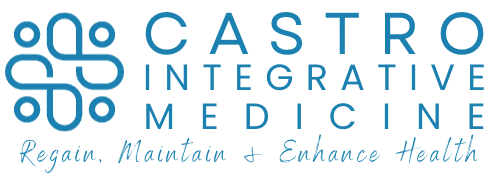The discovery of antibiotics marked a turning point in modern medicine, heralding an era where bacterial infections that once claimed lives became easily manageable. However, as our understanding of the human body and its intricate systems deepens, it’s becoming increasingly clear that antibiotics, while lifesaving, carry a hidden cost, particularly concerning our gut health and the microbiome within.
The gut microbiome, a complex ecosystem of bacteria, viruses, fungi, and other microorganisms living in our digestive tracts, plays a pivotal role in our overall health. Far from being mere passengers, these microorganisms influence everything from our digestion and immune system function to cardiovascular health and even mental well-being. The balance of this delicate ecosystem is crucial for maintaining our health.
However, this balance is under threat, not just from the antibiotics prescribed in clinical settings but from those that lurk unseen in our daily diets. Surprisingly, a significant portion of antibiotics do not go to treating human illness but to livestock. In the United States, it’s estimated that 80% of antibiotics are given to animals, primarily to promote growth and prevent disease in crowded living conditions. This practice has led to the presence of antibiotic residues in the meat, dairy, and eggs consumed by the public, contributing to the inadvertent intake of antibiotics.
One of the less-discussed aspects of antibiotics is their ability to disrupt the gut microbiome. Even low doses of antibiotics, like those that might be consumed through food, can alter the composition of the gut microbiome, promoting antibiotic-resistant bacteria growth, and disturbing the delicate balance of this ecosystem. This disruption can have wide-ranging effects on health, from increasing susceptibility to infections to affecting metabolism and increasing the risk of certain diseases.
Moreover, glyphosate, a widely used herbicide, was actually patented as an antibiotic in 2010. Its widespread application means that it’s not just the antibiotics in animal products we need to worry about; it’s also the residues of glyphosate and similar substances on plant-based foods that can impact our gut microbiome.
The implications of a disrupted microbiome extend beyond immediate gut health concerns. The gut-brain axis, a complex communication network linking the gut and the brain, means that the state of our gut microbiome can influence our mental health, mood, and even cognitive function. Furthermore, the microbiome plays a critical role in modulating the immune system, and imbalances have been linked to autoimmune diseases and allergies.
Cardiovascular health is another area profoundly impacted by the gut microbiome. Research has shown that certain gut bacteria can influence blood pressure and cholesterol levels, factors directly linked to heart disease risk. Moreover, metabolites produced by gut bacteria, such as short-chain fatty acids, have been shown to have protective effects on heart health.
Given the far-reaching impacts of antibiotics on the gut microbiome and, by extension, on various aspects of health, it’s clear that a more judicious approach to antibiotic use is needed. This includes not only reevaluating the use of antibiotics in agriculture but also fostering a greater awareness among consumers about the sources of their food.
To protect and restore our gut microbiome, dietary changes are essential. Whole, organic foods rich in fiber and nutrients, are preferred by beneficial gut bacteria. Foods high in fiber, such as apples, artichokes, and avocados, along with fermented items like sauerkraut, kimchi and kefir, are particularly beneficial. Meats, especially those from grass-fed and organically raised animals, can provide essential nutrients like protein, vitamins, and minerals that support gut health. Meanwhile, reducing the intake of refined sugars, processed foods, and those likely to contain antibiotic residues or glyphosate is also crucial.
Beyond diet, lifestyle factors such as stress management, adequate sleep, and regular physical activity can support a healthy microbiome. In cases where antibiotics are necessary for treating infections, the use of probiotics may help mitigate some of the negative impacts on the gut microbiome.
The relationship between antibiotics, our diets, and gut health is a complex one, with significant implications for our overall well-being. As research continues to unveil the depth of this connection, it becomes increasingly clear that maintaining a healthy gut microbiome is essential, requiring a conscious effort to minimize unnecessary antibiotic exposure and support the gut through diet and lifestyle choices. The path to better health, it seems, truly does begin in the gut.
For comprehensive guidance on nurturing your gut health and addressing all your wellness concerns from a holistic standpoint, visit us at Castro Integrative Medicine.

